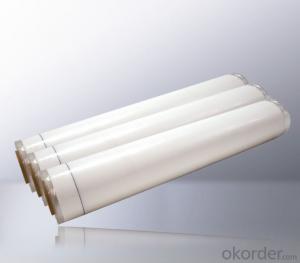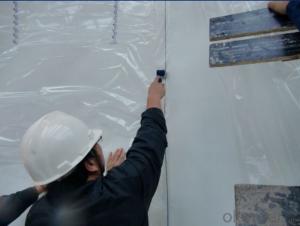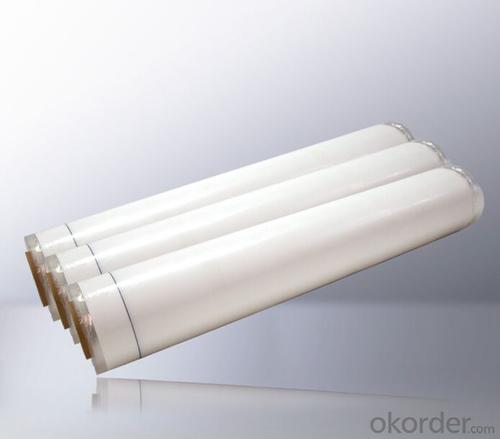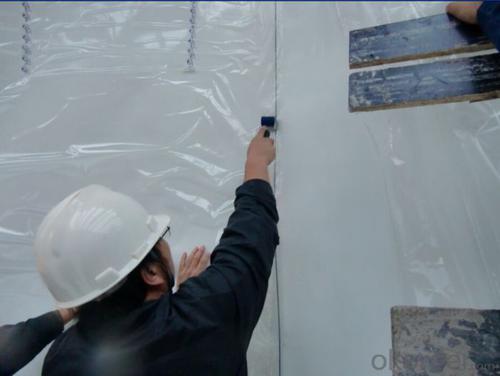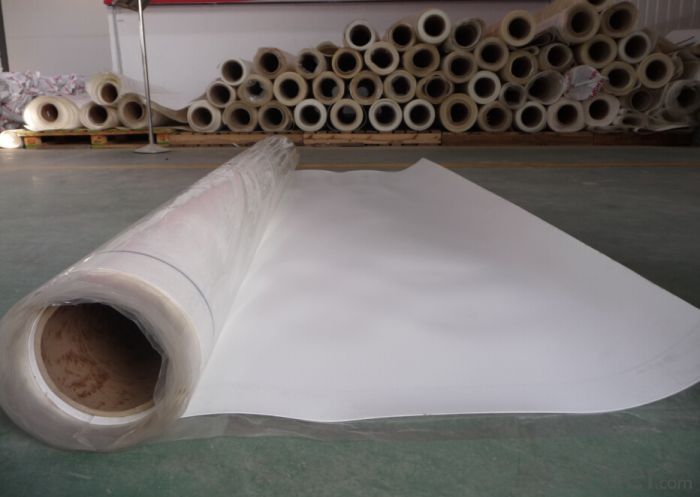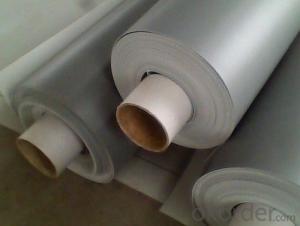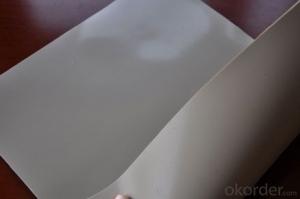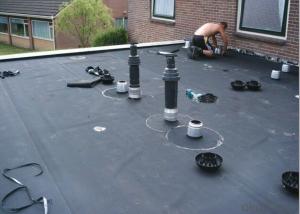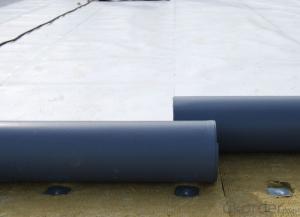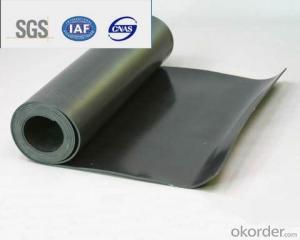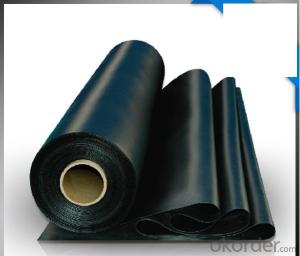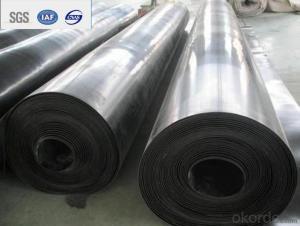HPDE Waterproof Roofing Membrane Thickness with 1.2 mm
- Loading Port:
- Qingdao
- Payment Terms:
- TT OR LC
- Min Order Qty:
- 5000 m²
- Supply Capability:
- 10000 m²/month
OKorder Service Pledge
OKorder Financial Service
You Might Also Like
HDPE Waterproof Membrane Introduction:
HDPE Self-adhesive Waterproof Membrane is specially used in underground project, it can bond with concrete layer tightly. After Membrane bonding with concrete, water can be blocked between membrane and concrete, which can improve the reliability.
HDPE Waterproof Membrane Applications:
Basement,Subway,Tunnel Cave, Other underground public constructions.
HDPE Waterproof Membrane Advantages:
1. Good bonding with concrete applied on membrane, to block water between membrane and concrete further to protect concrete effectively.
2. Low flatness requirement to substrate, reliable overlapping; mechanical fixing, easy application.
3. Sound anti-puncture performance.
4. Adaptable to settlement and distortion.
5. Weather-resisting and anti-UV.
6. Resist to acid, alkali, mold.
7. Eco-friendly material
FAQ:
1. What are we supplying?
We are specialized in producing Colorful Asphalt Roof Shingle, SBS/APP modified bitumen waterproof membrane, Self adhesive bitumen waterproof membrane, PVC waterproofing membrane, EPDM rubber roofing membrane, Single Component Polyurethane Waterproof Coating, and Spray Polyurea Waterproof Coating.
2. How Many years experience do we have?
We have been exported to more than 20 countries in the past 15 years.
3. How long do we usually reply your request?
We always reply our customer within 24 hours.
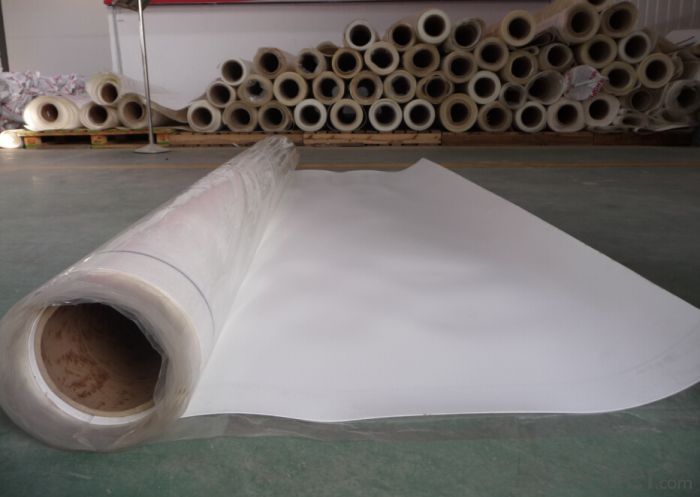
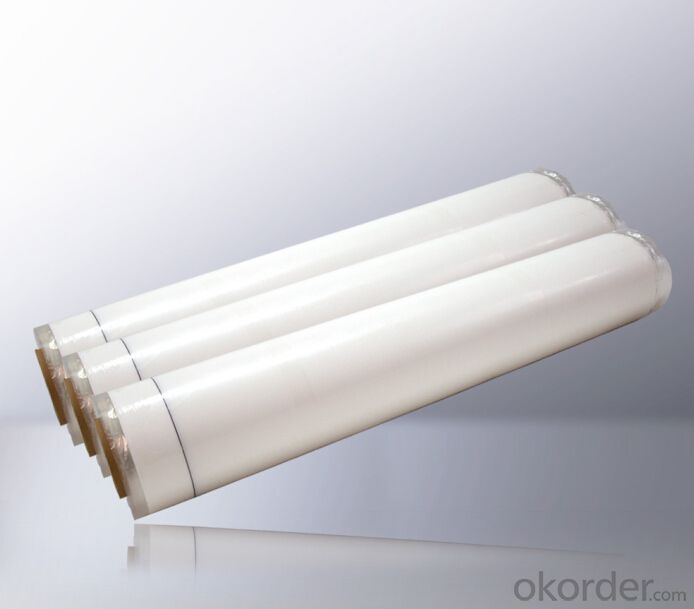
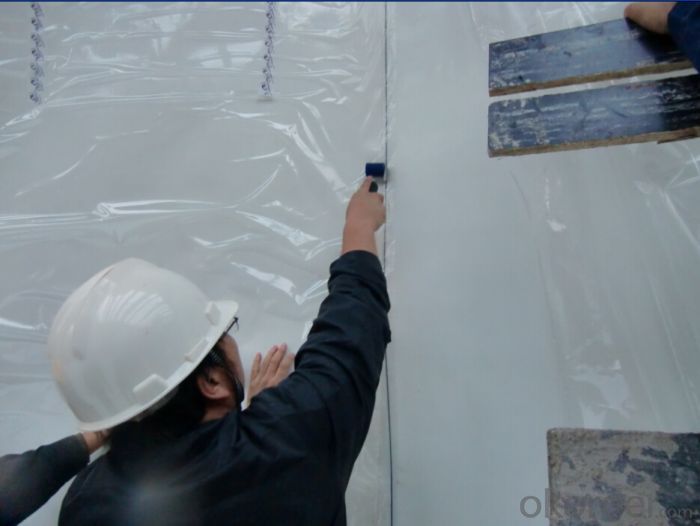
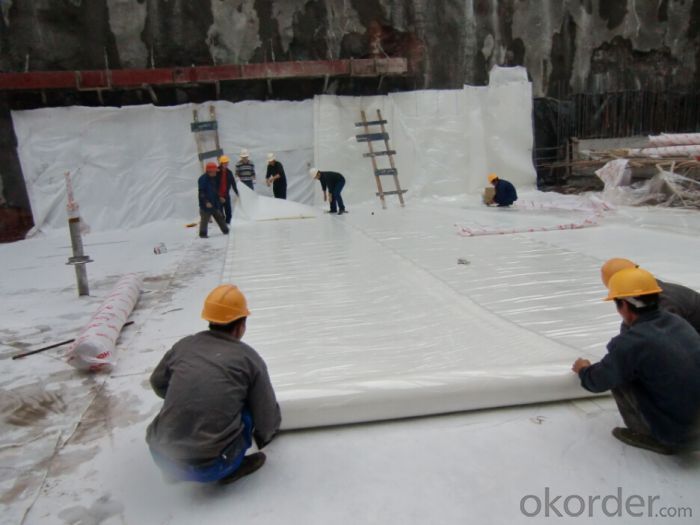
- Q: Does a waterproofing membrane prevent water infiltration through concrete?
- Yes, a waterproofing membrane can prevent water infiltration through concrete. A waterproofing membrane is a material that is applied to the surface of concrete structures to create a barrier against water penetration. It is designed to be impermeable to water and to provide a protective layer that seals the concrete surface. When properly installed, the waterproofing membrane can effectively prevent water from seeping through the concrete, thereby protecting the structure from water damage and potential structural issues. However, it is important to note that the effectiveness of a waterproofing membrane depends on the quality of the materials used, the installation process, and the maintenance of the membrane over time.
- Q: Can a waterproofing membrane be applied on a vertical surface?
- Indeed, it is possible to apply a waterproofing membrane on a vertical surface. Vertical surfaces, including walls, foundations, and retaining walls, often benefit from the application of waterproofing membranes to safeguard against water infiltration and safeguard the underlying structures. These specialized membranes are formulated to adhere to vertical surfaces and establish a barrier that hinders water penetration. Commonly, they are applied utilizing various techniques such as spraying or rolling, and are suitable for both new construction and renovation endeavors. The utilization of a waterproofing membrane on a vertical surface is a reliable method to guarantee the long-lasting sturdiness and soundness of the edifice, preventing water-related harm.
- Q: Can a waterproofing membrane be used for fountains or water features?
- Yes, a waterproofing membrane can be used for fountains or water features. These membranes are specifically designed to prevent water from penetrating through surfaces, making them ideal for ensuring the structure is watertight and preventing leaks.
- Q: Does a waterproofing membrane require any curing time?
- Indeed, a curing time is typically necessary for a waterproofing membrane to fully bond and establish a robust, impermeable barrier. The duration of this curing period can differ based on the type of membrane employed and the instructions provided by the manufacturer. While the membrane is undergoing the curing process, precautions should be taken to shield it from foot traffic, water exposure, and any other potential sources of harm. Adhering to the recommended curing time is crucial in guaranteeing the membrane's effectiveness and durability.
- Q: Can waterproofing membranes be used on underground tunnels?
- Underground tunnels can indeed utilize waterproofing membranes. These specialized membranes are crafted to create a barrier against water infiltration and are widely employed in various construction contexts, including subterranean structures like tunnels. Typically composed of materials such as bitumen, asphalt, or synthetic rubber, these membranes possess exceptional waterproofing capabilities. Once applied to the walls and floors of a tunnel, waterproofing membranes establish a protective layer that hinders water from permeating into the tunnel. This becomes particularly crucial in underground tunnels, as they are vulnerable to water intrusion from the surrounding soil or groundwater. By implementing waterproofing membranes, the integrity and longevity of the tunnel structure are preserved, minimizing the risk of water damage, corrosion, and deterioration. Moreover, waterproofing membranes yield additional advantages, such as resistance against chemical attacks, prevention of mold and mildew growth, and enhancement of overall tunnel insulation. These membranes can be employed either during the construction phase of the tunnel or as a retrofit solution for existing tunnels. It is essential to note that the choice of the appropriate waterproofing membrane should be based on factors such as the tunnel type, anticipated water pressure, and overall design requirements. Seeking guidance from a professional engineer or waterproofing specialist is highly recommended to ensure the selection and installation of the most suitable waterproofing membrane for underground tunnels.
- Q: Are waterproofing membranes suitable for bridge abutments?
- Yes, waterproofing membranes are suitable for bridge abutments. These membranes provide an effective barrier against water infiltration, protecting the abutments from moisture-related damages such as corrosion, deterioration, and leakage. They help extend the lifespan of the bridge and ensure its structural integrity.
- Q: Can a waterproofing membrane be applied to concrete surfaces?
- Yes, a waterproofing membrane can be applied to concrete surfaces.
- Q: Can a waterproofing membrane be used on roofs?
- Yes, a waterproofing membrane can be used on roofs. Waterproofing membranes are often applied to roofs to provide a protective barrier against water penetration and ensure the roof remains watertight.
- Q: Can a waterproofing membrane be used for swimming pool decks or patios?
- Yes, a waterproofing membrane can definitely be used for swimming pool decks or patios. These membranes are designed to create a protective barrier that prevents water from penetrating the surface and causing damage. They can be used to waterproof various types of surfaces, including concrete, wood, and stone. By applying a waterproofing membrane to a swimming pool deck or patio, you can protect the underlying structure from water damage, such as cracks, mold, and deterioration. Additionally, these membranes can also provide slip resistance, which is an important safety feature around swimming pools. Overall, using a waterproofing membrane is an effective and reliable method to protect and prolong the lifespan of swimming pool decks and patios.
- Q: Can a waterproofing membrane be used for dams?
- A waterproofing membrane is suitable for dams, which are constructions designed to retain water and form reservoirs. It is of utmost importance to guarantee that these structures are impenetrable to water to avoid leakage and potential harm. In the construction of dams, it is typical to utilize waterproofing membranes as a safeguard against water infiltration, which could lead to erosion or compromise the structural integrity. These membranes are typically composed of resilient materials like rubber or reinforced PVC, engineered to withstand water pressure and endure over time. Furthermore, the installation of a waterproofing membrane also aids in mitigating the potential risk of seepage and leakage in the dam, ensuring the overall structure's safety and efficacy.
Send your message to us
HPDE Waterproof Roofing Membrane Thickness with 1.2 mm
- Loading Port:
- Qingdao
- Payment Terms:
- TT OR LC
- Min Order Qty:
- 5000 m²
- Supply Capability:
- 10000 m²/month
OKorder Service Pledge
OKorder Financial Service
Similar products
Hot products
Hot Searches
Related keywords
